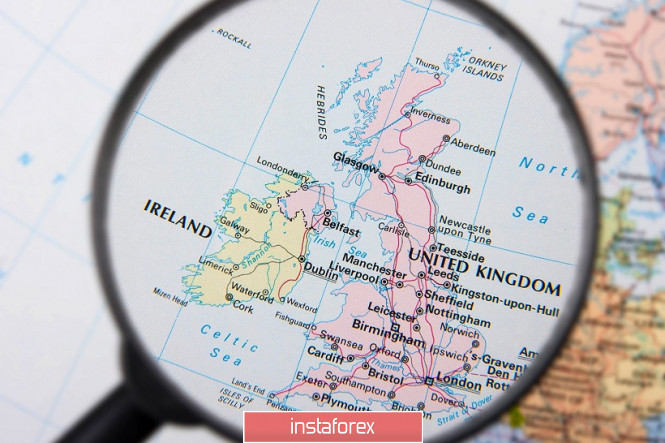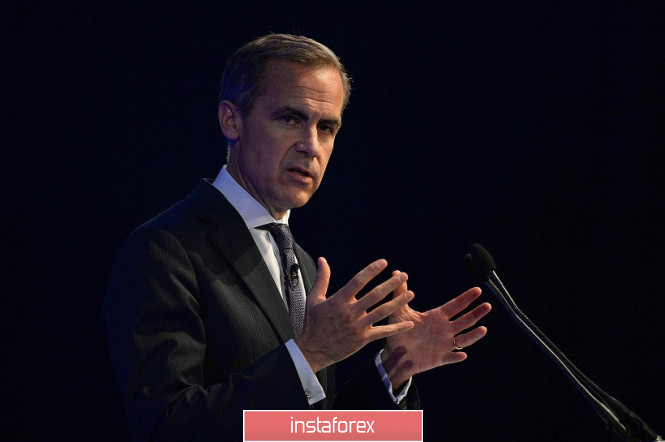The results of "Super Thursday" were expectedly not in favor of the British currency, although the first violin in the downward pressure on the pound was played not by the head of the Bank of England Mark Carney, but by two members of the English regulator who unexpectedly called for easing monetary policy. Traders were clearly discouraged by this fact, since the prospects of monetary policy have recently been discussed in a slightly different aspect. Experts discussed - will the BoE raise the rate in the first half of next year or will it still take a wait-and-see attitude? Now this discussion has been supplemented with one more question - will the English regulator resort to a preventive reduction in the rate?

The culprits of the bearish triumph were two members of the Committee - Michael Saunders and Jonathan Haskel. It is worth noting that Saunders is not the first to vote "against the grain", that is, contrary to the general opinion of most colleagues. A little over a year ago, he, along with Ian McCafferty, voted to raise the rate, while the remaining seven members of the Committee voted to maintain the status quo. This went on for three meetings, but then Saunders again joined the majority, voting in a general rhythm.
Now there is a mirror situation. Saunders and Haskel voted to reduce interest rates, violating the expected balance of power (0-2-7 instead of the predicted 0-0-9). For the first time in three years (that is, since August 2016), members of the Committee, albeit not in the majority, voted in favor of easing monetary policy. Moreover, Saunders and Haskell said that the regulator needs to introduce additional incentives as soon as possible, since recent releases indicate a weakening of the British labor market amid increasing risks from the global trade conflict.
The BoE did not support the peculiar "dissidents" in its conclusions, but also did not exclude the realization of such a scenario in the future. The rhetoric of the accompanying statement left a double impression. On the one hand, the English regulator made it clear that if global economic growth does not stabilize, Brexit uncertainty will continue, and key economic indicators will continue downward trend, then the central bank may have to intervene. But then the regulator hastened to declare the likelihood of an alternative scenario. If these risks do not materialize, then the issue of a gradual increase in the rate will again be on the agenda.
In other words, the prospects for monetary policy in the UK again depend on external factors. The Bank of England made it clear that it is ready to tighten monetary policy, but in the conditions of a "soft" Brexit and at least a conditional trade truce between the US and China. And of course, given the growth of key macroeconomic indicators in Britain, especially in the labor market and inflation.
Unfortunately for the GBP/USD bulls, the English regulator lowered its forecasts for the main economic indicators. So, GDP growth for the next year was reduced from 1.3% to the lowest level over the past ten years, 1.2%, and in 2021 - from 2.3% immediately to 1.8%. The BoE also lowered its inflation forecast - according to regulator members, its growth will slow by 1.2% by mid-2020, due to lower prices for black gold and regulatory restrictions on electricity and water tariffs.
Summing up the November meeting, Mark Carney confirmed that the central bank's next likely move would be a reduction in interest rates, as the Bank of England's updated economic forecasts were revised negatively. He also expressed concern that weak investment is detrimental to industrial production, thereby limiting the growth of the British economy and slowing inflation.

Nevertheless, it cannot be said that Carney announced a rate cut in the near future. He just did not rule out a similar scenario, linking it primarily with a possible "hard" Brexit and a general slowdown in the global economy. He voiced such rhetoric more than once, just in this case, Carney's position was reinforced by updated forecasts of the central bank of a negative nature. The two members of the Committee who voted in favor of lowering the rate only added fuel to the fire, putting additional pressure on the pound.
Thus, the November meeting of the Bank of England was by no means "passing". But despite the dovish tone of the regulator, the downward impulse of the GBP/USD pair was limited. Bears could not even gain a foothold in the 27th figure, and the price actually returned to its previous positions during the US session on Thursday. Apparently, traders are still tuned for a Conservative victory in December, and, accordingly, for the soft Brexit, with all the ensuing consequences.
Given this market reaction, it can be assumed that the GBP/USD pair will continue to trade flat, reacting violently only to political news. The pound turned out to be stress-resistant to dovish threats from the Bank of England, so the further dynamics of the pair will be determined only by the political prospects of the "divorce proceedings" between London and Brussels.
The material has been provided by InstaForex Company - www.instaforex.com